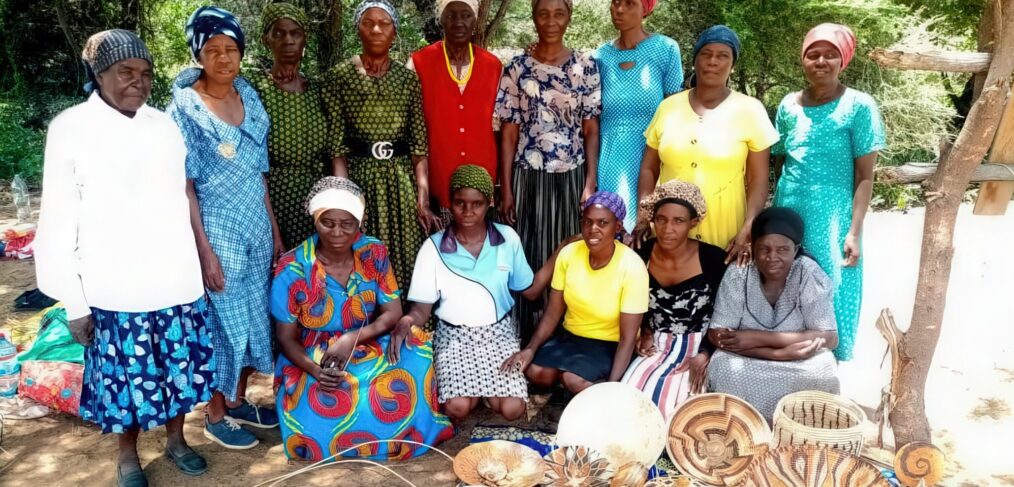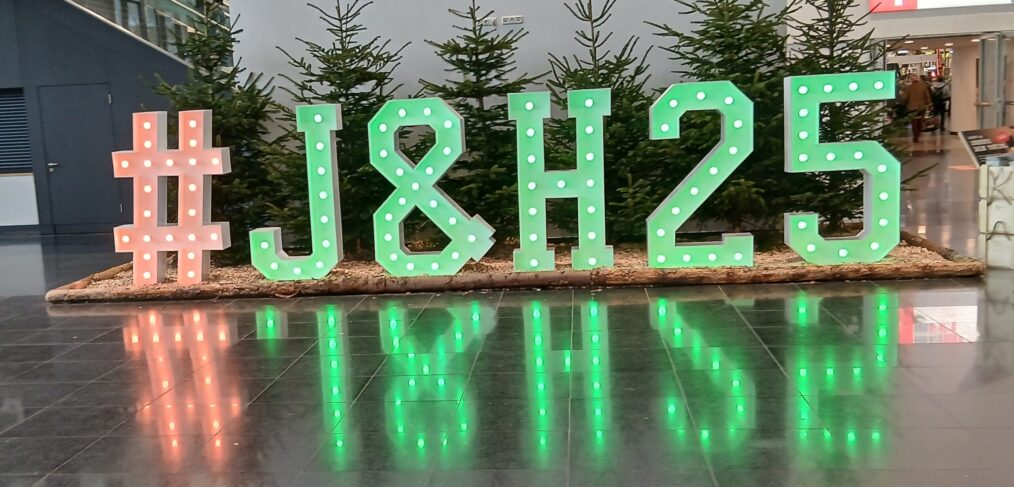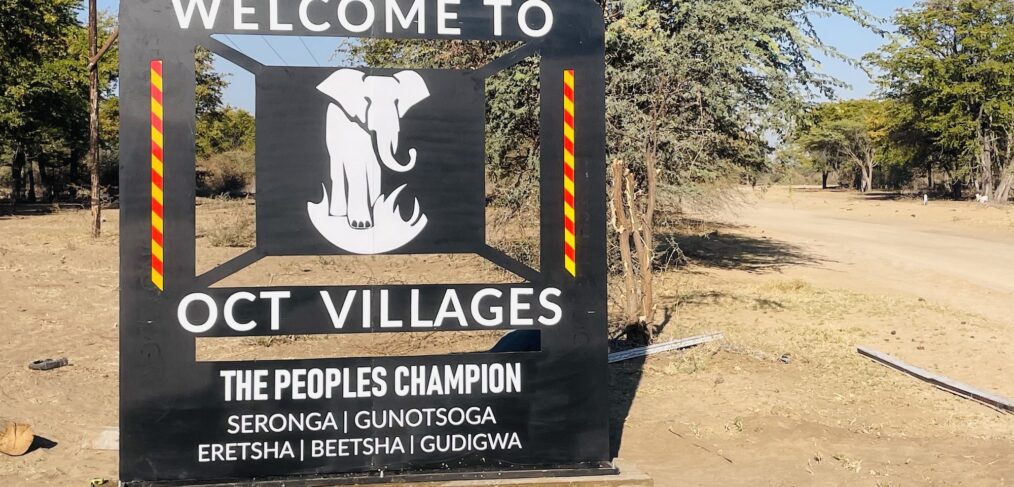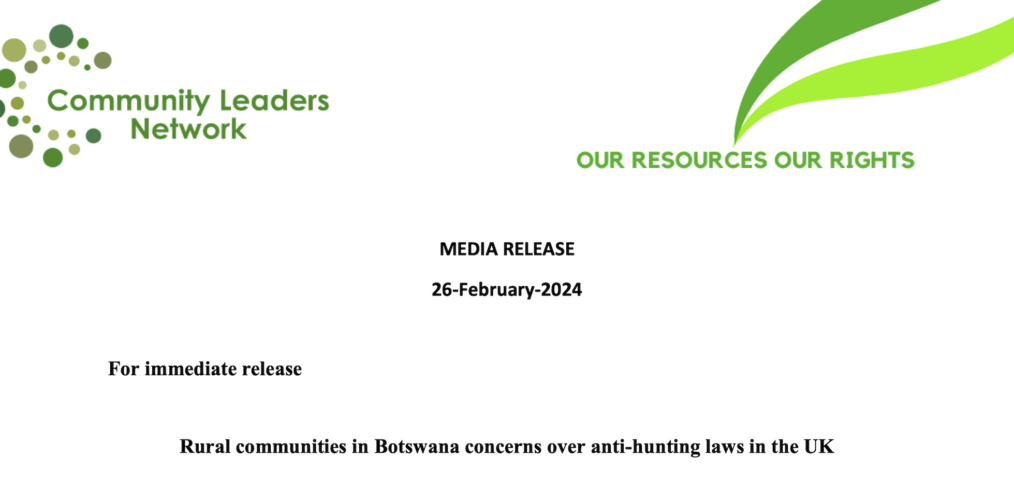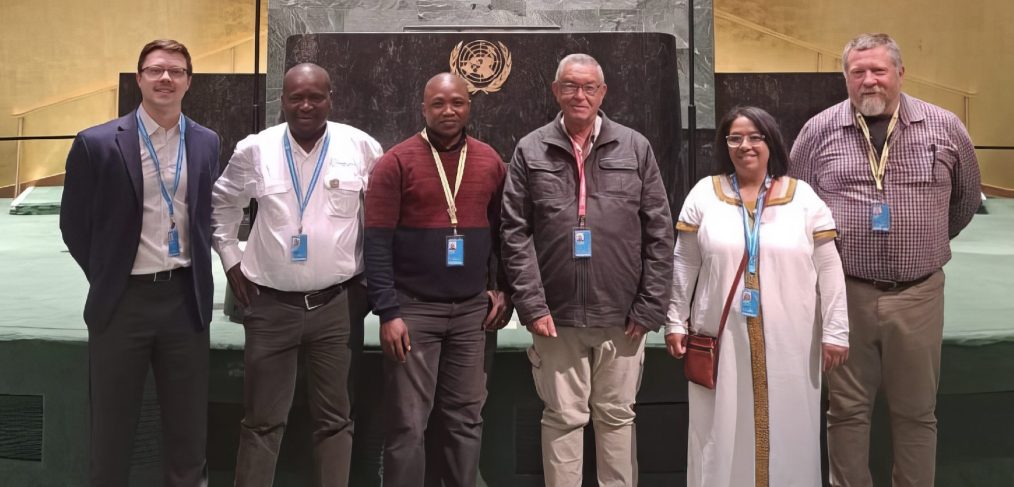Basket weaving is an integral part of the culture of local communities in living on the banks of the Okavango River, particularly among the Hambukushu and Wayeyi tribes. This rich tradition has been passed down through generations, preserving not only cultural heritage but also the intricate skills involved. In recent years, due to economic and livelihood challenges, basket weaving has evolved into a sought-after art form, captivating tourists who flock to the Okavango Delta. Each visitor desires to take home a piece of this craftsmanship, making basket weaving a significant economic lifeline for these communities.
Communities in Botswana are looking to grow their hunting market and therefore jumped at the chance to send two representatives to the Dortmund Jagd & Hund hunting exhibition in Germany. As guests of the International Council for Game and Wildlife Conservation (CIC), they joined the Botswana and Zimbabwean Ambassadors to Germany to discuss the role of hunting in African conservation.
Viewed from space, the world-famous Okavango Delta looks like a large pan attached to a handle – the Okavango River. The ‘pan-handle’ area includes villages along the western and eastern banks of the river – those on the west are located near a tar road that connects Namibia with northern Botswana. Those on the east have a dirt road that connects with the west over one river crossing, which until very recently (a bridge built in 2022) involved crossing the Okavango River using a pontoon.
On 22 February 2024, 17 Community Trusts in Botswana along with the Ngamiland Council of NGOs (NCONGO) expressed their deep concern with a campaign advocating for a ban on hunting trophy imports into the United Kingdom (UK) that will negatively affect their livelihoods and wildlife conservation efforts. These Trusts are democratically elected entities speaking on behalf of their respective communities that live alongside elephants and other wildlife species in Botswana.
As the Chairperson of Community Leaders Network of Southern Africa, I participated in the recent 22nd Session of the United Nations Permanent Forum on Indigenous Issues (UNPFII) held in New York, USA. It was a real eye opener for me, as I started to appreciate the challenges, abuse and human rights infringements that over 6.7 million indigenous peoples around the world have had to endure.

